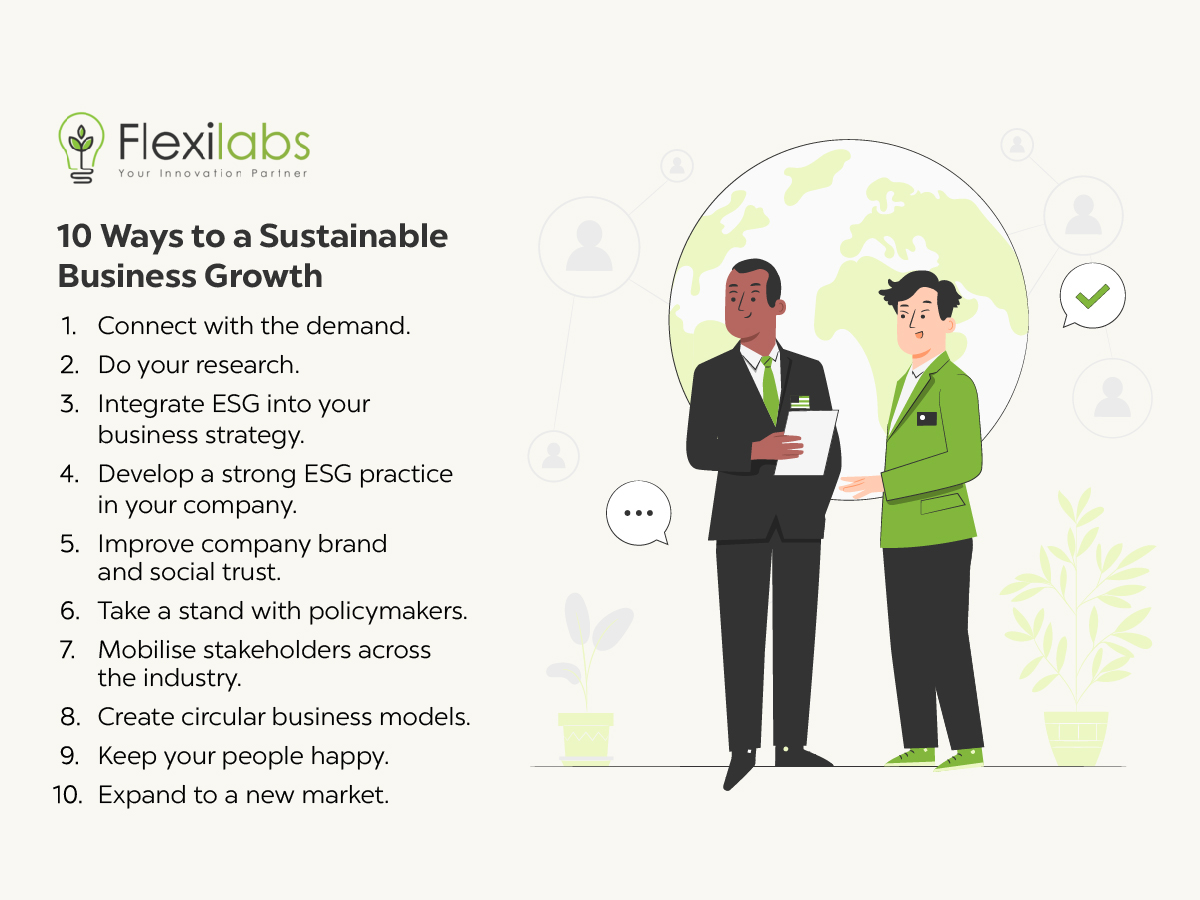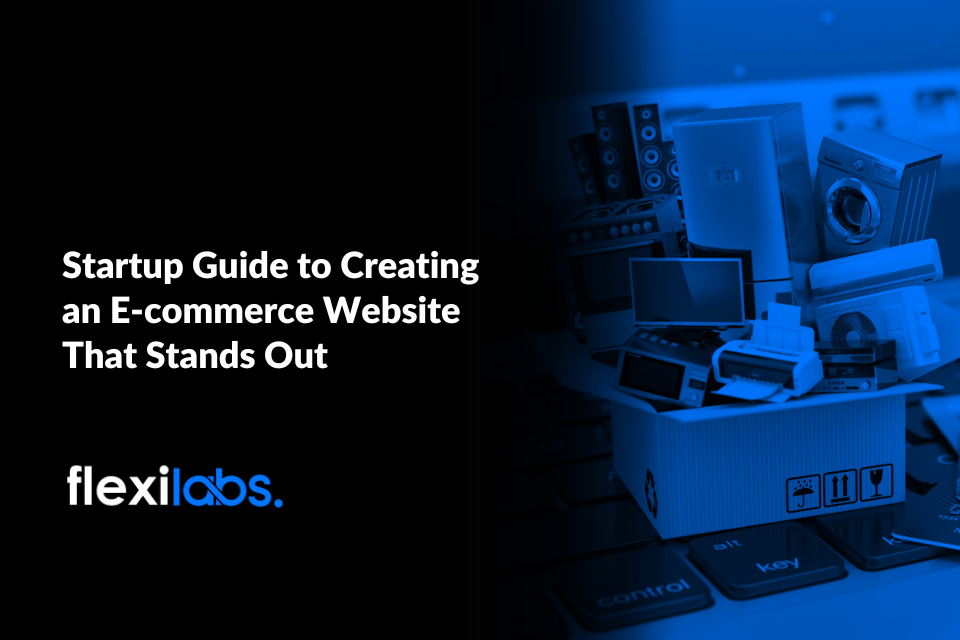We all know that growth is essential for any kind of business, big or small. Development is also important for a business’s long-term success as it provides stability and sustainability over time. Moreover, growth allows enterprises to develop new products and services that meet the needs of their customers.
Still, many companies do have what we call sustainable growth. Sustainable growth helps businesses stay competitive, increase their revenue and profits, and expand their customer base.
But did you know that sustainable driving growth is not easy? Sustainable growth requires organisations to plan, identify potential risks and capitalise on opportunities. Thus, this article will share 10 small business strategies to help you grow.
What is Sustainable Growth in Business?
Sustainable growth is a company’s long-term, continuous growth that is achieved by balancing economic, environmental, and social considerations to avoid business failures. It involves increasing revenues and profits while also considering the impact of the company’s operations on its environment and community.
Sustainable growth requires businesses to adopt innovative strategies prioritising long-term success over short-term gains. It ensures the company’s financial stability and helps it become more resilient in the face of changes in markets or regulations.
10 Ways to a Sustainable Growth in Business
As mentioned earlier, building a small business with sustainable growth is challenging. But with the right idea, elements, and strategy, you can achieve growth. Likewise, here are 10 ways you can conduct business development.

1. Connect with the demand
Demand and market are good indicators for small businesses to know what industry is profitable, which trend they should adopt, or gain information about their sector. Moreover, it is essential to understand the market’s demand and how it changes over time. Knowing the market’s demand can help companies plan their strategies accordingly and ensure that their products or services align with customers’ needs.
Companies should also consider the changing trends and technologies when deciding on their strategies for sustainable growth. By understanding customer needs and anticipating future trends, companies can ensure that they are well-positioned to meet customer demands and continue growing sustainably.
2. Do your research
Sustainable growth is a vital concept that requires careful research and planning. Companies must consider various factors such as customer needs, market trends, competitive landscape, and technological advancements to ensure long-term success.
Researching these topics can help small businesses identify potential growth opportunities and develop strategies to capitalise on them. Additionally, studying best practices from other companies in similar industries can provide valuable insights into how to achieve sustainable growth.
3. Integrate ESG into your business strategy
Environmental, Social, and Governance (ESG) is a set of standards that measure an organisation’s sustainability and ethical impact. It is an essential aspect for organisations to consider as it helps to ensure that their actions are socially responsible and have a positive environmental impact.
ESG can also help organisations create long-term value by reducing risk, improving operational efficiency, and increasing customer loyalty. Today, ESG is considered an essential part of any organisation’s operations, as it helps companies take the necessary steps to protect their stakeholders and the environment.
4. Develop a strong ESG practice in your company.
Developing ESG standards requires organisations to consider various factors, including environmental protection, social responsibility, and corporate governance. Specific characteristics define a strong ESG. These include transparency, sustainability, corporate social accountability, ethical practices, and corporate governance.
Companies with strong ESG scores are seen as more reliable investments as they demonstrate their commitment to long-term success. These companies can also benefit from better brand recognition and increased customer loyalty due to their responsible business practices.
5. Improve company brand and social trust
Building a solid brand for your company is essential for sustainable growth. A successful brand can help you establish trust and loyalty among your customers and attract new customers. You can create a powerful brand with the right strategies to help your small business grow and thrive.
To improve your company’s brand, you must focus on creating an engaging customer experience, developing an effective marketing strategy, and building a positive reputation in the industry. Additionally, companies should focus on building relationships with customers by providing quality products or services and engaging with them through social media channels.
By taking these steps, companies can create an environment of mutual respect and understanding that will help them succeed in the long run.
6. Take a stand with policymakers
The role of policymakers in society is essential. They ensure that the environment remains conducive for businesses to thrive and grow. They create policies that help businesses succeed while also protecting the interests of consumers.
Policymakers play a vital in setting up rules and regulations that guide how businesses operate, as well as providing incentives for companies to innovate and invest in new technologies. They also set up frameworks for taxation, labor laws, and trade policies that affect the competitive landscape of different industries.
As such, as entrepreneurs, businesses need to take a stand with policymakers. By engaging with policymakers, entrepreneurs can ensure that they can advocate their interests and that their voices are heard when decisions are being made.
Consequently, policymakers can provide a good business environment for all and create a level playing field for all businesses to compete on. This helps ensure economic growth and stability in any given region or country.
7. Mobilise stakeholders across the industry.
Industry stakeholders are an integral part of any successful business. They provide various resources, such as financial capital, expertise, and networks, that can be used to drive growth and profitability. Stakeholders also play a critical role in decision-making and help ensure the business operates ethically.
Mobilising stakeholders in small business is necessary to engage and motivate individuals and organisations to work together towards a common goal. It can also help build long-term partnerships that can benefit all involved in the future. This will lead to improved performance and increased profitability over time.
To mobilise stakeholders effectively, it is crucial to identify their interests and motivations. This can be done through research, interviews, and surveys. Once these interests are identified, it is possible to create a plan outlining how these stakeholders can be engaged to achieve the organization’s desired objectives.
8. Create circular business models.
A circular business model is a sustainable approach to doing business that focuses on reducing waste and creating a positive environmental impact. It is based on the principles of circular economy, an economic system that minimises waste and maximises resource efficiency. This model reduces raw materials, energy, and other resources while creating customer value. Doing so helps businesses become more profitable while reducing their environmental footprint.
Circular business models have the potential to revolutionise the way businesses operate. By designing products, services, and operations that reduce waste and increase efficiency, circular companies can create a more sustainable future for their customers and the environment.
Moreover, by embracing a circular business model, companies can benefit from cost savings, increased customer loyalty, and improved brand reputation.
9. Keep your people happy.
Keeping employees happy is essential for any business to grow and succeed. Happy employees are more productive, provide better customer service, and are more likely to stay with the company. They also help create a positive working environment that encourages creativity and innovation.
Additionally, happy employees can help spread the word about your business through word-of-mouth marketing, which can be invaluable for growth. Ultimately, happy employees are a vital factor in the success of any business.
10. Expand to a new market.
Expanding markets is an essential part of sustainable growth. It helps businesses reach new customers, explore new opportunities and tap into untapped resources. It also enables companies to diversify their products and services, leading to better profitability and sustainability.
By expanding markets, businesses can also create a competitive edge in the industry by offering unique products or services unavailable elsewhere. This can help them gain more market share and increase their customer base.
Conclusion
Driving a sustainable growth model in your business can help reduce risk and enhance future success. So, what are you waiting for? Try applying these 10 steps and take your business to the next stage.
Flexilabs can help you achieve sustainable growth through our programs. Contact us now!










